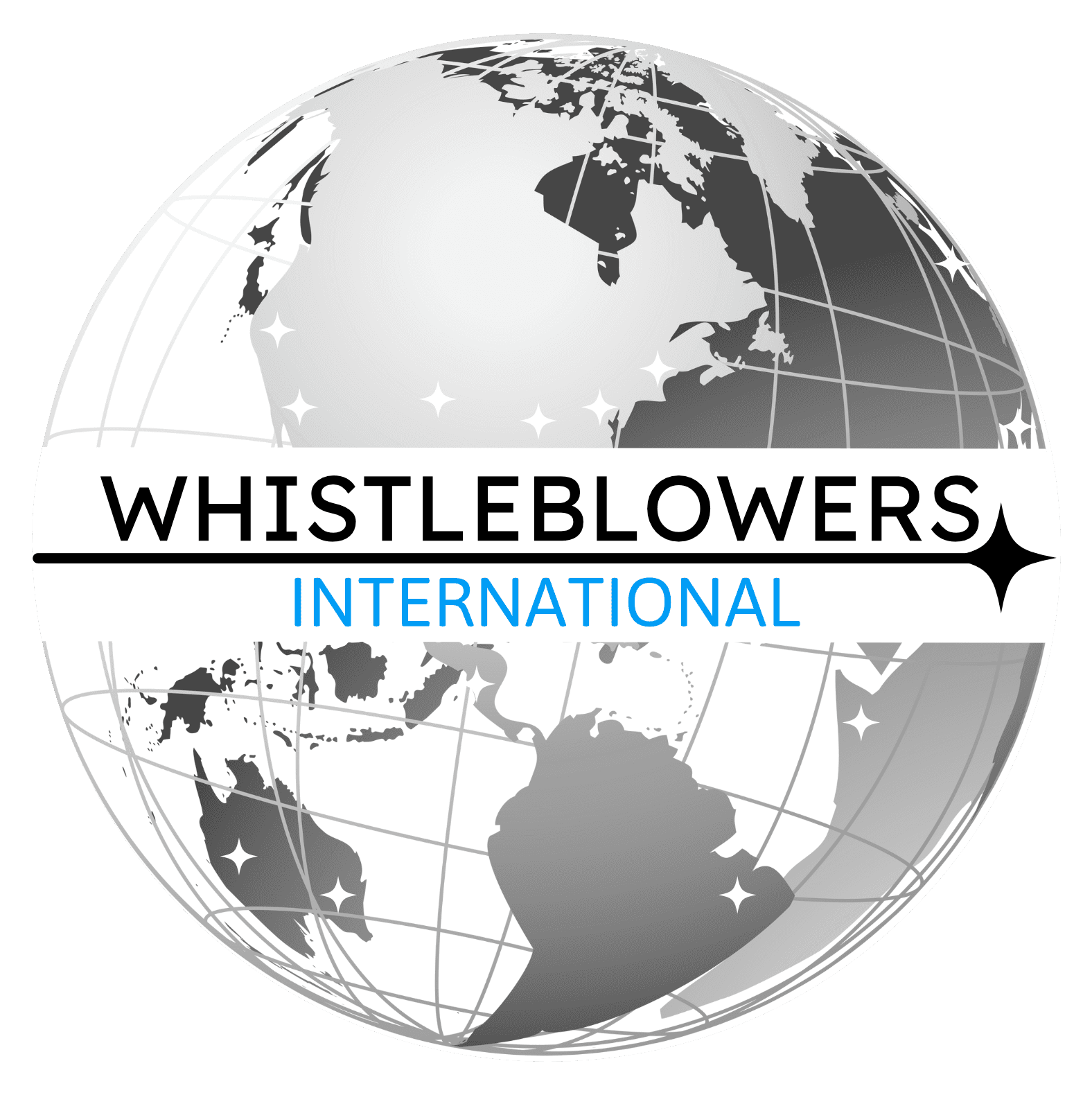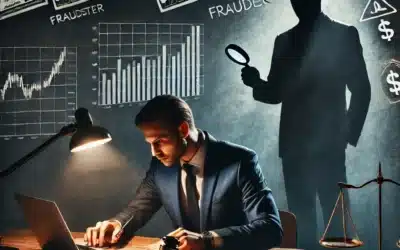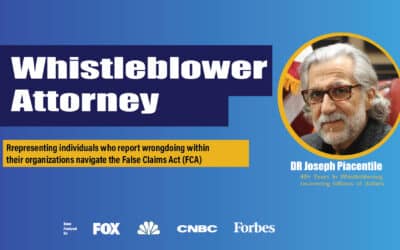TAX FRAUD
TAX FRAUD
The U.S. Government relies on the help of whistleblowers who report tax fraud and evasion to the Internal Revenue Service (IRS). Corporations and individuals who intentionally defraud the government by underpaying taxes commit a crime that violates Title 26 and Title 18 of the United States Code.
WHAT IS TAX FRAUD?
Tax fraud is the deliberate attempt to evade or defeat any tax that is lawfully due. While companies and citizens may legally seek to lower their tax burden as much as possible, outright fraud and exploiting loopholes in order to pay fewer taxes to Federal and State governments is illegal and can be reported to the IRS under the IRS whistleblower program. Those who earn income through global trade and services have also several additional methods to abuse these exploits and avoid due payments. The penalties for this type of felony include civil and criminal fines, imprisonment and back payment with interest.
IMPACT OF TAX FRAUD
The IRS estimates that tax fraud, evasion, and underpayments directly result in the Federal Government collecting $450 to $500 billion less in tax revenue each year. This gap must be bridged by either cutting funding for federal programs or by increasing the burden on law‐abiding U.S. taxpayers to generate more revenue.
This type of fraud is difficult to detect and even harder to prove because the authorities must show that the underpayment was intentional. This could be difficult in large companies where accounting and records keeping procedures are complex and easily manipulated. Often, only company insiders know the true story of why or how a corporation cheated the authorities by using shell companies or hiding funds in international tax havens such as Panama to conceal their true earnings. In fact, international tax schemes may be costing the federal government (and American taxpayers) as much as $160 billion every year. The IRS lacks the resources to uncover these sophisticated scams and relies on whistleblowers to help them through the investigations.
HOW TO REPORT TAX FRAUD WITH THE IRS WHISTLEBLOWER PROGRAM

After the success of the False Claims Act, the IRS created its Whistleblower Office in December 2006. This Rewards Program pays a percentage of the recovery between 15% and 30% of the total amount reclaimed to those who blew the whistle, and resulted in more than $25 billion in recoveries by the U.S. government. Individuals may anonymously report any type of tax fraud ranging from underpayment and negligence to outright evasion by hiring an attorney who will act as their proxy.
WHY SHOULD YOU CHOOSE US TO HELP YOU FIGHT AGAINST TAX FRAUD?
Finding a competent lawyer to help you report a crime to the IRS is mandatory to maximize your award. We played a crucial role in helping many plaintiffs secure some of the most notable whistleblower settlements in the history of our country. Our team includes some of the most famous personalities in whistleblowing that will help you during the investigation and trial phases.
Contact Us Today
The information submitted will be submitted to the law firm of Piacentile, Stefanowski & Associates LLP d/b/a Whistleblowers International. This communication does not create an attorney-client relationship and is submitted only for the purpose of evaluating your claim to see if this is something we are able to help you with. By contacting us, you certify that you are a potential client making a bona fide inquiry about obtaining legal services to address a potential whistleblowing legal claim. Past results do not guarantee future outcomes. While this submission does not create an attorney-client relationship, all information submitted will be kept strictly confidential per legal ethics rules since this information is submitted in contemplation of a potential attorney-client relationship. No attorney-client relationship is formed until it is determined after evaluation with you that this is something we can take on and a retainer agreement is signed by you and the law firm of Piacentile, Stefanowski & Malherbe LLP d/b/a Whistleblowers International. Please also understand that by submitting your information, there is no guarantee that we will contact you in response, as at any given time, there are only a limited number of claims we are able to take on and pursue. If we do not contact you within 3-business days of your submission, please reach out to another whistleblower law firm if you are interested in pursuing your matter.
Our Areas of Practice
Healthcare Fraud
Securities / Derivatives Fraud
Fraud Against the Government
Tax Fraud
Cryptocurrencies Fraud
Defense Contractor Fraud
Money Laundering
Foreign Corrupt Practices Act
DR. JOE’S CASES HAVE BEEN FEATURED IN:





FAMOUS CASES OF TAX FRAUD
G.B. ENTERPRISES FALSE DEDUCTIONS
In 1996, G.B. Enterprises filed a fraudulent return where it included over $5 million in improper deductions. For over 8 years, the car dealing company exaggerated its sales commissions by $56,879,852 to artificially create a larger tax penalty. In June 2004, G.B. eventually agreed to pay $36.5 millionfor tax fraud offenses.
THE UBS BANK
In 2009, UBS settled with the IRS for $780 million following claims that it had unlawfully aided U.S. citizens in hiding their assets in Swiss bank accounts. A whistleblower who contributed to the investigation received a $104 million reward for the information he provided.
FALSIFIED RECORDS
UPS paid $25 millionto the U.S. Department of Justice and an additional $4.2 million to pay a whistleblower suit that claimed the shipping business falsified delivery records for government packages.
IS YOUR CASE GOING TO BE SUCCESSFUL IN COURT?
If you took part or witnessed any widespread fraudulent behavior within your workplace, you may take the first step and become a whistleblower. However, not every claim is valid in court, so in order to increase your chances of success you need to substantiate your claims with privileged information or physical evidence.
TAKE THE FIRST STEP
If you or someone you know has information about tax fraud, our expert legal team will conduct a free case evaluation to help you better understand your legal options and what you can expect should you decide to file a whistleblower claim.
If you delay in filing a claim it can weaken your case and reduce your potential reward, so we urge you to contact us by filling out a formor calling toll-free at . Your first consultation is freeand confidential.
COMMITTED TO GLOBAL TRANSPARENCY
Unmasking Investment Fraud: A Private Investigator’s Guide to Navigating Financial Scams
As a private investigator specializing in investment fraud cases, I've seen countless victims fall prey to sophisticated schemes that exploit their trust and hard-earned money. Over the years, I’ve gathered insights on how to spot fraud, protect investments, and take...
Whistleblower Attorneys: Protecting Those Who Speak Out Against Fraud
At Whistleblowers International, we specialize in representing courageous individuals who report fraud, misconduct, or illegal Whistleblower Attorneys: Protecting Those Who Expose Fraud At Whistleblowers International, we are...
Financial Crimes Enforcement Network (FinCEN): An Overview
The Financial Crimes Enforcement Network (FinCEN) is a bureau within the U.S. Department of the Treasury that plays a critical role in safeguarding the financial system against illicit activities such as money laundering, terrorist financing, and other financial...
What is FinCEN?
The Financial Crimes Enforcement Network (FinCEN) is a bureau of the U.S. Department of the Treasury dedicated to combating financial crimes, such as money laundering, terrorist financing, and other illicit activities that exploit the financial system. Established in...
PCBs and Cancer: Understanding the Risks and Connections
Polychlorinated Biphenyls (PCBs) are chemical compounds that were widely used in industrial applications before their ban in the late 1970s due to health concerns. One of the most significant risks associated with PCB exposure is cancer. Numerous studies have explored...
Understanding the Current PCB Legal Landscape and Emerging Cases
Polychlorinated Biphenyls (PCBs) Polychlorinated Biphenyls (PCBs) have been the subject of numerous lawsuits for decades due to their widespread use and enduring impact on the environment and public health. Despite being banned in the late 1970s, PCBs continue to pose...
Understanding PCB Exposure: Common Questions and Answers
What is PCB Exposure? Q: What is PCB exposure? A: PCB (Polychlorinated Biphenyl) exposure refers to contact with these man-made chemicals, which were widely used in various industrial applications from the 1930s until their production was banned in many countries in...
Top U.S. Government Contractors and the Risks of Procurement Fraud
The U.S. government is one of the largest purchasers of goods and services globally, spending hundreds of billions annually on contracts with private companies. While these contracts provide significant business opportunities, they also come with risks, including the...
Understanding Government Contract Fraud: Can Contractors Be Criminally Charged?
Government contract fraud is a significant issue affecting both the federal government and the private sector. With billions of dollars allocated to government contracts annually, instances of fraud have emerged as a critical concern. This article explores whether...
Understanding Securities and Commodities Fraud: Insights from a Lawyer’s Perspective
Securities and commodities fraud can be complex and overwhelming to navigate, especially if you're facing legal challenges in these areas. This blog post aims to shed light on the essential aspects of securities and commodities fraud, answering key questions and...
The information on this website is for general information purposes only. Nothing on this site should be taken as legal advice for any individual case or situation.
We do not accept cases in all jurisdictions. No representation is made that the quality of the legal services to be performed is greater than the quality of legal services performed by other lawyers. Prior results do not guarantee a similar outcome. This information is not intended to create, and receipt or viewing does not constitute, an attorney-client relationship. While we will treat any information provided as privileged and confidential, you should understand that when you provide information about a potential case to us, we do not become your attorneys. We do not represent you until we have agreed to do so and a retainer has been signed by both of us. This information is not intended to create, and receipt or viewing does not constitute, an attorney-client relationship. This website may be considered attorney advertising in some states.
© 2024 All Rights Reserved.




